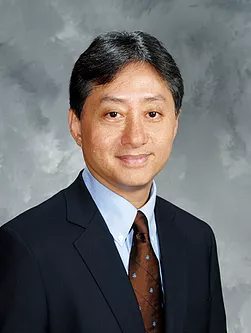In January 2023, the University of Melbourne will welcome Professor James Kai-sing Kung as the inaugural Griffin Chair in Economic History at the Faculty of Business and Economics.
It’s a post Professor Kung is extremely excited to take up, having connected with several members of the faculty in Melbourne in 2008. “The city left a wonderful impression on me,” Professor Kung said, “When the opportunity presented itself to jump hemispheres, I thought ‘Why not?’”

The Griffin Chair in Economic History position was made available through a $5 million dollar gift from the Peter Griffin and Terry Swann Foundation, who trusted the Faculty to expand this distinct area of teaching and research. For Peter Griffin AM, he hopes his donation will help to educate future generations on the mistakes of their predecessors and mitigate similar economic missteps in the future. "I am passionate about Economic History and am very keen that students leave the University of Melbourne with a good understanding of business and finance, and also a deep awareness of previous mistakes made by governments, industry and the banking sector,” he said.
An international search for the position was undertaken in 2021 and Professor Kung proved an excellent candidate. Currently the Isaac R. Souede Professor in Economic History in the Faculty of Business and Economics at the University of Hong Kong (HKU), he has also held a distinguished career at Hong Kong University of Science of Technology (HKUST) as the Yan Ai Foundation Professor of Social Science. Professor Kung completed his Ph.D. in Economics from the University of Cambridge in the UK.
Professor Kung is renowned for his expertise in the economic and political history of China, including the country's civil exam system (keju) and its long-term consequences for human capital development. His paper, “Long Live Keju! The Persistent Effects of China’s Civil Examination System” was chosen as the winner of the 2020 Royal Economic Society Prize, for the best paper published in the Economic Journal (October 2020).
Cultures are shaped by the centuries that precede them, Professor Kung explains. His research in economic history has helped demystify centuries-old traditions associated with China’s academic rigour, as well as its political and social ideology. “It's a great example of how and why history matters,” Professor Kung says. Professor Kung is equally passionate about teaching, having earned a number of awards in this area over his career. He takes great pride and care in nurturing his research students and continues to work alongside his former students today. Are his future students lucky to learn from him in 2023? “I should hope so,” he says laughing.